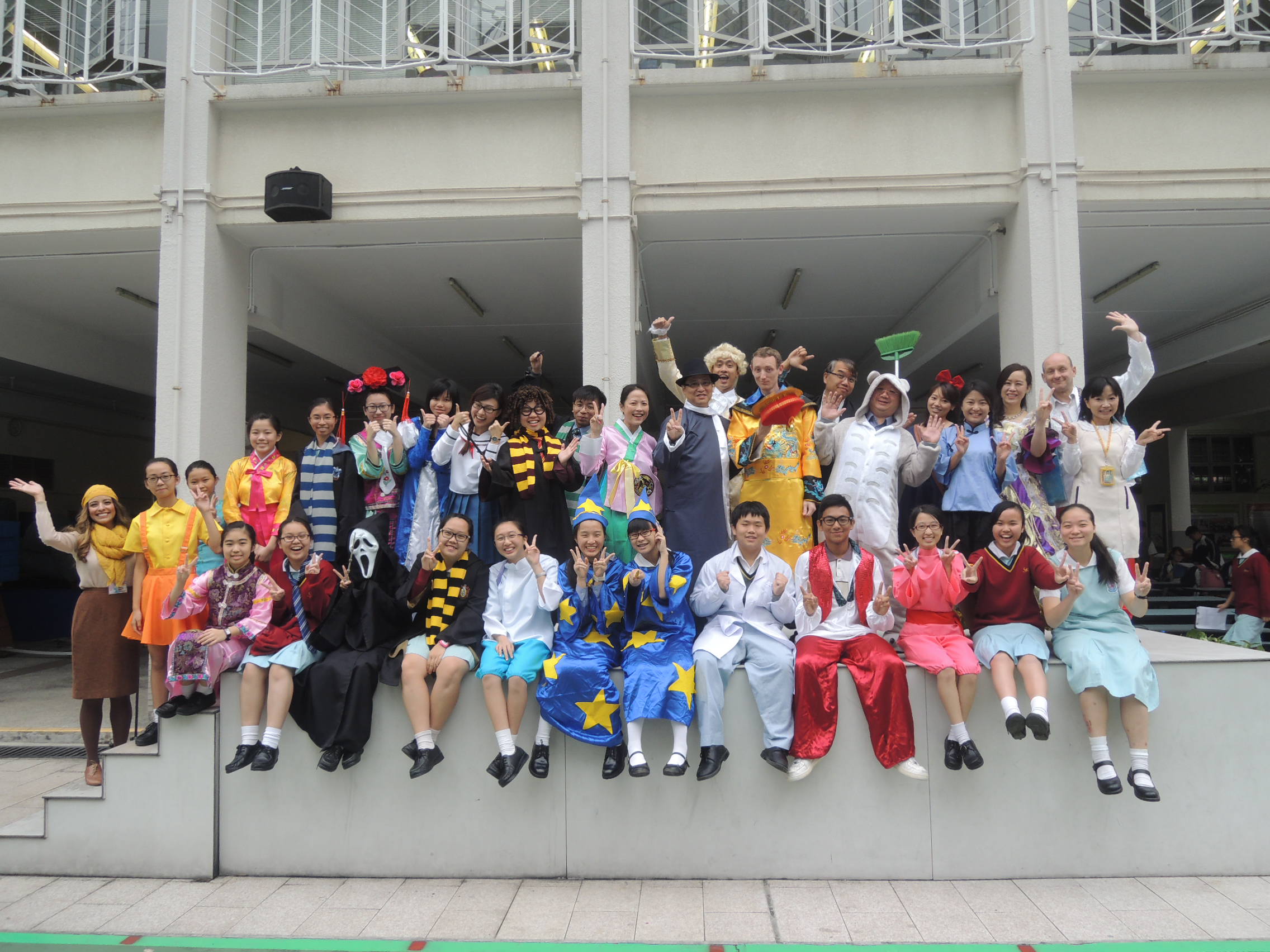理念
- 以宣基人身份,針對不同時空與情境,例如文化、社會、經濟、政治及科技等範疇經常出現的當代議題作多角度思考,以至對自身、社會、國家、人文世界有所理解。
- 學生能夠以宣基文化為起點,欣賞身處社區所屬文化、香港文化、與及其他文化,願意成為盡責認真的青少年。
- 學生能反思自己多元身份、價值系統和世界觀的發展,尤其是有關個人經歷、社會文化境況,以及科學、科技和全球化發展所帶來的各種影響。
- 識別對個人和社會議題不同意見背後的價值取向,運用明辨性思考能力、創造力,作出正確判斷和決定,並能夠建立正面的價值觀和積極的人生態度,成為對社會、國家和世界有認識和負責任的公民。
課桯
初中
- 中一至中三級設通識教育科,配合與學生自身經歷有密切連繫的當代議題,提供具趣味性的教材,鼓勵學生自主學習。
- 中二級設專題研習科,學生從中學習與專題研究相關的技巧,培養學生搜集資料、制定研究方法、進行數據分析、實踐科研探究等技能
- 初中課程內容配合高中通識課程,為高中學習作好準備。
高中
- 高中通識課程強調師生的互動,運用電子學習及自主策略,培養、提昇學生思考能力及自學能力。
- 在學習過程中,學生多討論、思考課題,廣泛閱讀與本科有關的書籍,與教師共同探討解決方法,以客觀的角度分析、評估証據,作出結論。
- 本校重視正向價值教育,學生學習在多元社會中欣賞和尊重不同文化和觀點,建構知識,學習處理相互衝突的價值觀,以正面、成熟的態度思考,能夠適應個人和社會環境的不斷轉變情況,成為對社會、國家和世界有承擔感的宣基人。
Philosophy
- Mathematics is a powerful means in a technology-oriented and information-rich society to help students acquire the ability to communicate, explore, conjecture, reason logically and solve problems using a variety of methods.
- Mathematics provides a means to acquire, organise and apply information, and plays an important role in communicating ideas through pictorial, graphical, symbolic, descriptive and analytical representations. Hence, mathematics helps to lay a strong foundation for students’ lifelong learning, and provides a platform for the acquisition of new knowledge in this rapidly changing world.
- Many of the developments, plans and decisions made in modern society rely, to some extent, on the use of measures, structures, patterns, shapes and the analysis of quantitative information. Therefore, mathematical experiences acquired enable students to become mathematically literate citizens who are more able to cope with the demands of the workplace.
- Mathematics is a tool to help students enhance their understanding of the world. It provides a foundation for the study of other disciplines in the secondary and post-secondary education system.
- Mathematics is an intellectual endeavour through which students can develop their imagination, initiative, creativity and flexibility of mind, as well as their ability to appreciate the beauty of nature. Mathematics is a discipline which plays a central role in human culture.
Curriculum
The overall curriculum aims are to develop in students:
- the ability to think critically and creatively, to conceptualise, inquire and reason mathematically, and to use mathematics to formulate and solve problems in daily life as well as in mathematical contexts and other disciplines;
- the ability to communicate with others and express their views clearly and logically in mathematical language;
- the ability to manipulate numbers, symbols and other mathematical objects;
- number sense, symbol sense, spatial sense, measurement sense and the capacity to appreciate structures and patterns;
- a positive attitude towards the learning of mathematics and an appreciation of the aesthetic nature and cultural aspects of mathematics.
Junior Curriculum
- School-based curricula embedded with authentic daily-life problems are adopted so as to meet students’ needs and enrich their learning experiences.
- The practice of problem solving and inquiry based approach is well established in junior form. In particular, different task activities are designed for students to work collaborate.
- Flipped Classroom is carried out in selected topics to enhance self-learning.
- Streaming policy enables students to learn and perform to the best of their abilities.
- Monthly challenging problems and Inter-class competitions are held to arouse students’ learning interest.
Senior Curriculum
- Both compulsory part and extended part of DSE curriculum are provided to students to suit their learning needs.
- DSE typed questions are pervaded in regular assignment and assessment to better prepare students for public examinations.
- Both after school enhancement and remedial programs are arranged to cater for learner diversity.
Philosophy
- If every language is a world, as suggested by Professor George Steiner, English can undoubtedly serve as the bridge connecting different ‘worlds’ together.We believe English plays an irreplaceable role in global communication and it opens up a new world for learners to seek for intellectual and social development, educational attainment, career advancement, personal fulfillment as well as cultural understanding.
- In our six-year English curriculum, we aspire to develop our students into proficient communicators as well as to instill in them the passion and enthusiasm for the language.
- It is our earnest hope that our students can use the language to explore the world around them and be equipped to be life-long language learners.
Junior Curriculum
- The Junior English Curriculum focuses on the consolidation and application of what students have learnt in the six-year primary curriculum as well as further developing and reinforcing their competence progressively in the four skill areas of reading, writing, listening and speaking in order to equip them for their next stage of learning in the senior secondary curriculum.
- We aspire to make English learning fun and authentic to students, with the aim of not only nurturing our students into confident and proficient communicators, but also cultivating in them the passion to appreciate and enjoy the language.
- We strive to build up an English-rich environment and enhance students’ literacy skills through introducing Literature in English in our S1-S2 curriculum.
- Students are also encouraged to participate in numerous out-of-classroom activities and competitions.
Senior Curriculum
- The Senior English Curriculum is carefully designed based on the solid groundwork laid at their junior secondary level, with an eye on the public examinations.
- We strive to fully prepare our students to take part in the HKDSE while we also place importance in instilling in them positive values and attitudes conducive to independent and lifelong language learning.
- It is our mission to equip students with the language proficiency as well as the generic skills they need for their future studies and career.
- Apart from individual learning experiences, students are encouraged to work collaboratively and are offered ample opportunities to participate in e-learning through which their cultural and social awareness is enhanced, and they will become creative learners who are ready to embrace the increasingly global and technology driven world.
理念
- 本校重視學生中國語文素養,深信語文素養為學生學習其他學問的基礎,也是全面發展和終身發展的基石。
- 本校中國語文科致力提升學生運用語言的能力,從中感受語言文字之美,培養語文學習的興趣。
- 除了培育學生中國語文能力外,本科重視發展學生高層次思維能力和良好思維素質,得到審美、品德的培育和文化的薰陶,以美化人格。
- 另外,本校中國語文課程理念兼顧人文性和工具性,全面提高學生的語文素養。
課程
- 本校中國語文科課程,秉承學校發展方向,揉合中西方思想,既有中國傳統教育內涵,又富西方的活潑動力。
- 在均衡的課程外,更進行校本抽離式資優培訓課程,課內及課外為學生提供適切的能力訓練,培養學生卓越的語文能力。
- 課程發展方面,過去被教育局邀請成為專業支援學校,為香港其他中學提供中文教學支援,本科亦參與教育局教育協作及研究計劃,得到專家指導,使中文課程發展更完善
初中
- 重視初中學生基礎能力的發展,規劃初中聽、說、讀、寫,每個學習範疇的重點。
- 自編文化教材,設立文化單元,加強文化素養的浸淫,含英咀華。
- 在中一、中二級全面推行普通話學習中文,在每星期四舉行普通話日,加強語境,營造普通話應用氛圍。
高中
- 迎向中文課程發展的趨勢,設立課程規劃小組,規劃高中課程架構與教學策略,銜接初中、高中課程發展。
- 配合學校的實際情況,發展校本課程,自編教材。
- 注重培養學生高階思維,啟發誘導,使學生在課程、考評等方面,有最好的預備,最佳的銜接。













